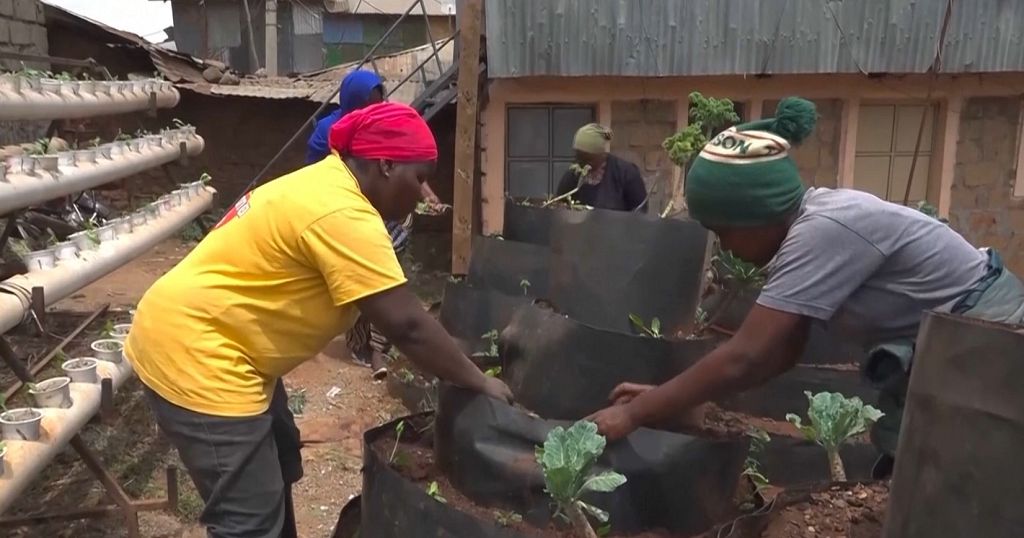In Kenya’s largest informal settlement, Kibera, a group of Nubian women is utilizing hydroponics and circular gardening to cultivate traditional vegetables. The Mazingira Women Initiative, established in 2019, aims to empower these women to preserve their cultural heritage while developing climate-resilient food systems. The initiative has 50 members who are also involved in environmental cleaning and recycling food waste into organic fertilizer.
The women are focusing on growing indigenous vegetables such as nyagwa, bamia, and mulkia, which are staples in Nubian cuisine. According to Salma Rashid, a member of the initiative, there is a high demand for these traditional foods in their community. The vegetables are used in various Nubian dishes, including mafrouk mulliavma bamia stew and are often served with gurusa, a soft fermented pancake made from wheat and maize flours.
At their urban farm in Kibera, the women have recently harvested bamia and are now planting other indigenous vegetables. Young farmers like Asia Abdalla have learned about Nubian traditional foods and how to grow them through the initiative. However, urban farming in informal settlements poses significant challenges, including the risk of land being repurposed for other uses.
Malasen Hamida, founder of the Mazingira Women Initiative, notes that urban farmers in informal settlements often face uncertainty about their ability to continue growing their own vegetables. Stephen Otieno, an urban planner and food systems strategist, emphasizes the need for urban farmers to adapt to the realities of climate change. He suggests that investing in indigenous crops can help build climate resilience.
The Mazingira Women Initiative’s efforts are significant, as they not only promote cultural preservation but also contribute to building a more sustainable food system. By utilizing hydroponics and circular gardening, the women are able to make the most of small spaces and reduce their environmental impact. As the initiative continues to grow, it may serve as a model for other urban farming projects in informal settlements, highlighting the importance of community-led initiatives in promoting climate resilience and cultural heritage.
